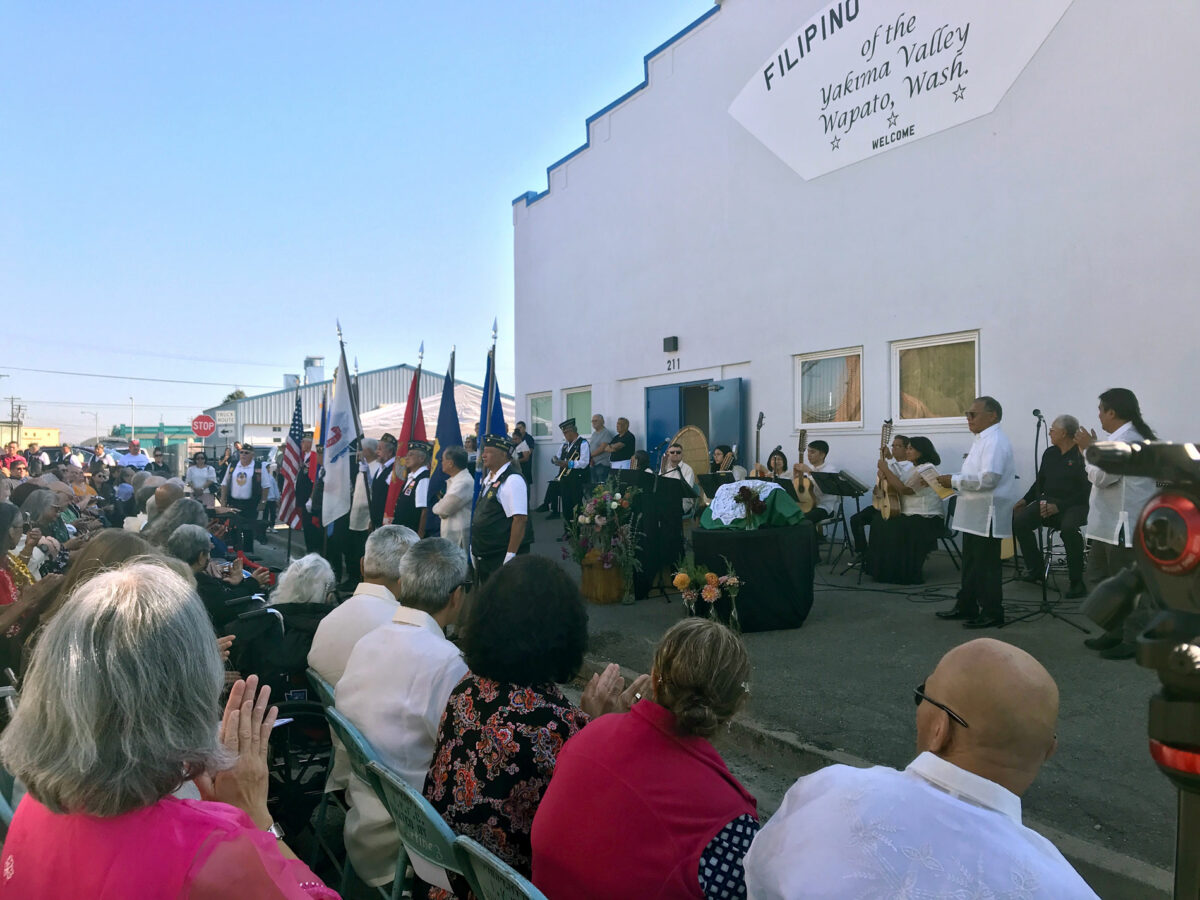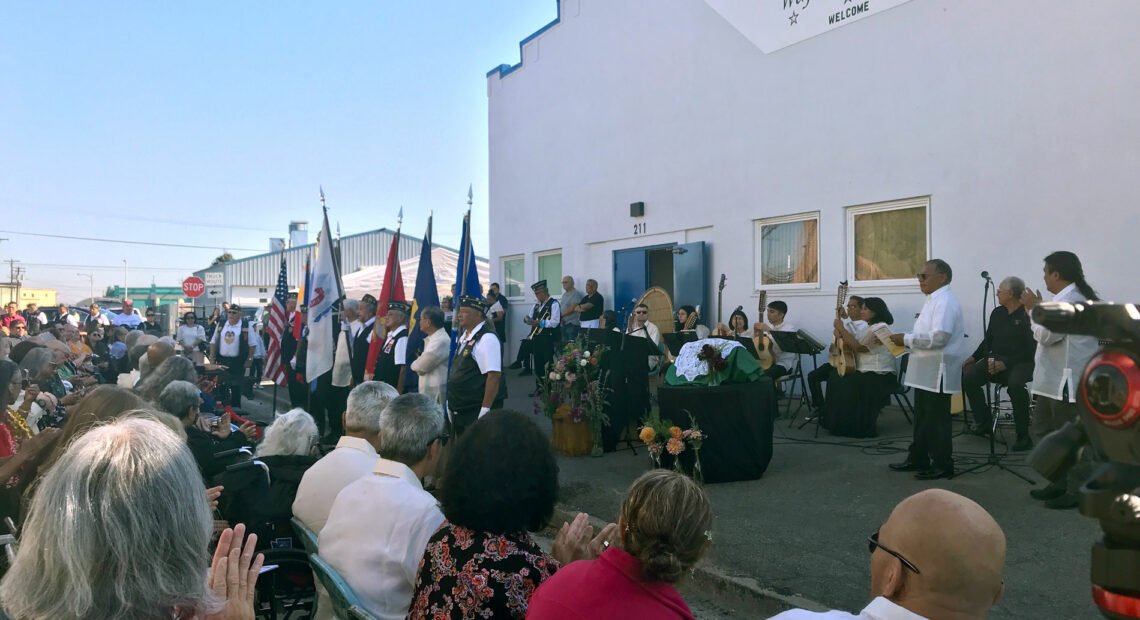
Filipino community celebrates building’s new historic designation in Wapato
Listen
(Runtime 1:22)
Read
Community members dressed in colorful and traditional clothes gathered at the Filipino Community Hall of the Yakima Valley in Wapato to celebrate its designation on the National Register of Historic Places.
According to a resolution from the Washington State House of Representatives, the hall was added to the National Register of Historic Places on Jan. 3. This follows its placement on the state’s Register of Historic Places by the Washington State Department of Archaeology and Historic Preservation in September 2023.
Maria Batayola is the treasurer of the Filipino American National Historical Society. She said it’s the third Filipino site on that national list.
“It is the first Filipino American hall that was built from the ground up in the whole of the United States. It’s sustained. It’s been a continuing gathering place for Filipinos and Filipino Americans,” Batayola said at the celebration on Saturday.
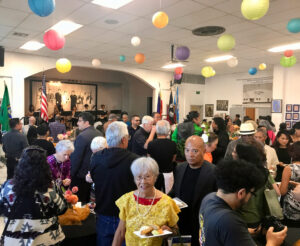
Members of the Filipino community enjoy traditional music and dishes during the celebration in Wapato. (Credit: Johanna Bejarano / NWPB)
Jim Tabayoyon, the president of the Filipino American Community of the Yakima Valley, said the hall was established in 1948 after community leaders fought against laws restricting Filipinos from owning land.
“It was built as a safe haven by our fathers back in the early ‘50s. They built it as a meeting place to have parties and weddings. It’s available to the whole community,” Tabayoyon said.
He said because of the war and poor crops, the building was not completed until 1952.
He said the hall has been maintained and run by volunteers for well over 70 years.
However, Reynaldo Pascua, a member of the Filipino pioneer families in the area, said the history of this community in the United States and the Yakima Valley goes back much further.
During the celebration, Pascua said in 1992, the Filipino American National Historical Society proclaimed each October to be Filipino American History Month. This commemorates when the first Filipino landed in the United States on Oct. 18, 1587.
“We have been here in the United States for 437 years. We have been in the Yakima Valley for 107 years,” he said.
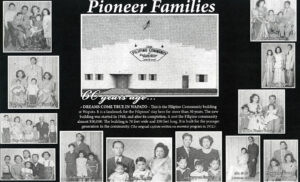
Filipino community pioneer families in the Yakima Valley. (Credit: Filipino Community of the Yakima Valley)
Pascua, who is also a trustee of the Filipino American National Historical Society and emeritus member of the Washington State Commission on Asian Pacific American Affairs, said the community faced challenges at the time, including the Great Depression, racism and the lack of opportunities and discrimination.
“They also faced anti-miscegenation laws and anti-alien land laws,” he said.
Tabayoyon said their forefathers started farming around 1920, but they could not own the land they were farming. Around 1937, the Alien Land Act was amended to allow them to buy land, he said.
In 1947, the community approved the constitution, naming themselves the Filipino American Community of the Yakima Valley. They started planning to build a community hall, Tabayoyon explained.
“Through the struggles with prejudice and other hardships, they were able to succeed,” he said.
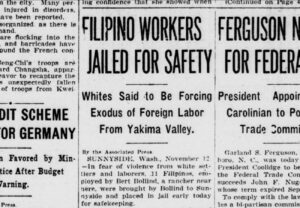
A news story in The Evening Star newspaper, published on Nov. 12, 1927, shows Filipino farmworkers’ challenges in the Yakima Valley in the 1920s. (Credit: chroniclingamerica.loc.gov)
Dori Peralta Baker is a member of the community and the hall’s national dedication committee.
“We named our hall Pearl of the Valley because it represents our culture. We like to embrace our Filipino customs and culture,” she said.
Tabayoyon said the hall is a place to celebrate the diversity of the Yakima Valley.
In a previous interview, Paul Tabayoyon, the executive director of the Asian Pacific Islander Coalition of Yakima, said the place is full of historical and cultural references.
“We have a lot of great historical images here that talk about the celebrations around the bands and how it just really created a nice community event every week or every other week where the community gets together,” he said.
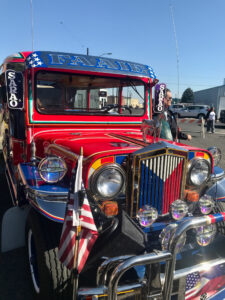
The Filipino-American Association of the Inland Empire’s Jeepney was shown during the celebration. (Credit: Johanna Bejarano / NWPB)
He said Native Americans, Hispanics, Latinos and other communities have participated in the hall’s activities.
The site is a center that transmits history and culture to new generations, including gastronomic traditions.
Paul Tabayoyon also said the community has a Thursday takeout, where their members cook traditional Filipino meals, which are open to the public.
Jim Tabayoyon said the hall also has provided at least 10,000 meals to the elderly and homeless in the neighborhood.

